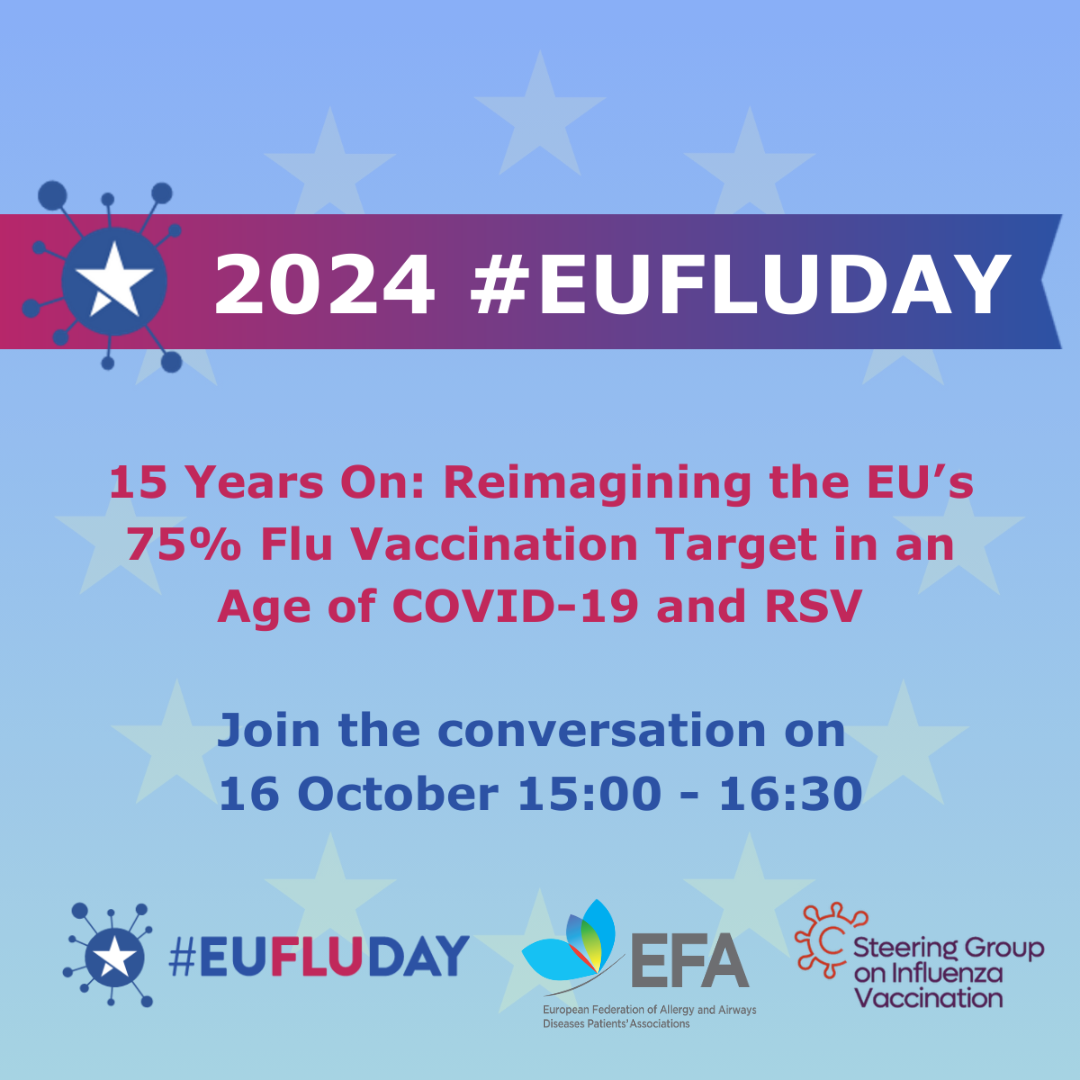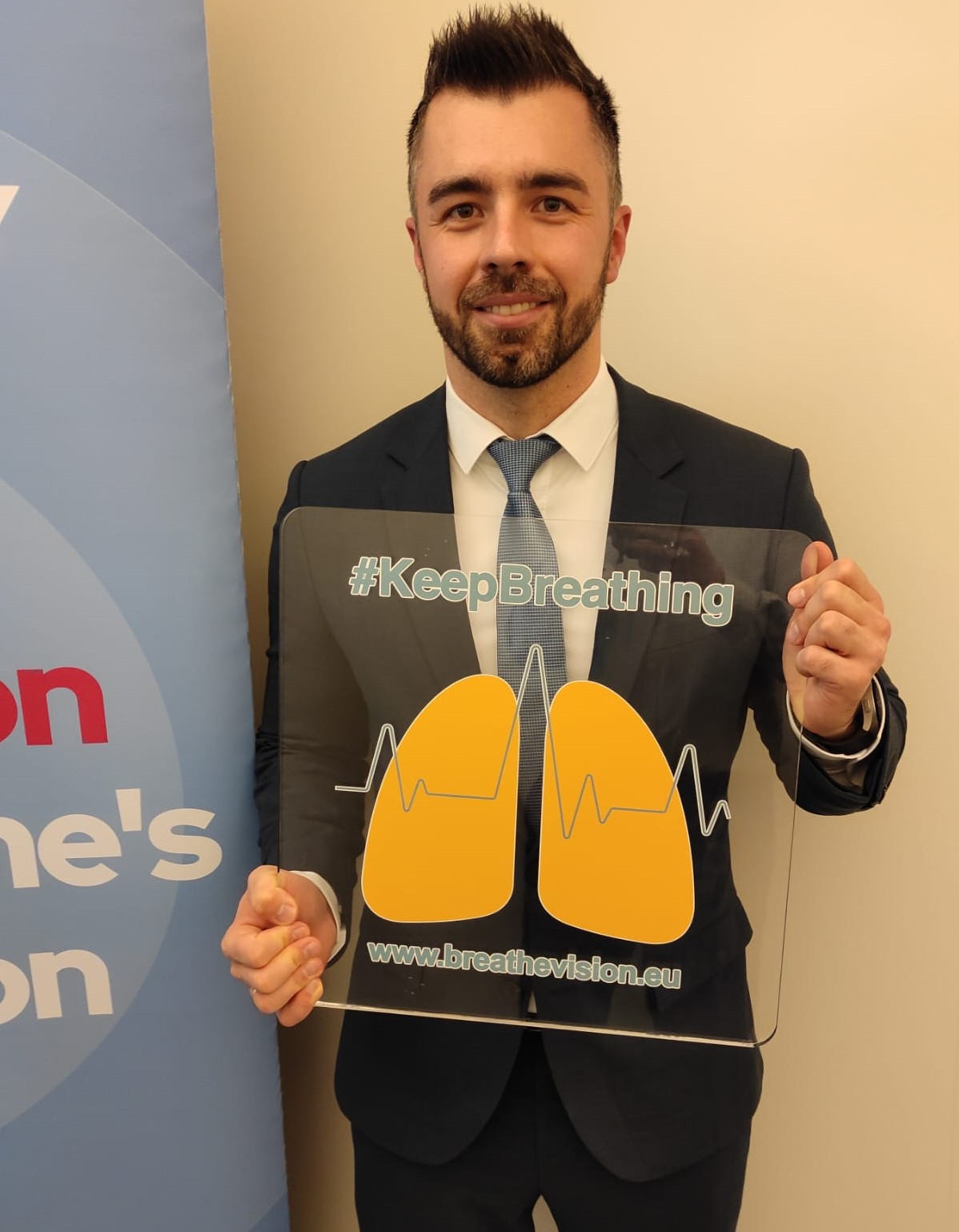On October 16, EFA attended the 2024 EU Flu Day event at the European Parliament. The hybrid event was hosted by MEPs András Tivadar Kulja (EPP-Hungary) and Dolors Montserrat (EPP-Spain), with contributions from MEP Vytenis Andriukaitis (S&D-Lithuania).

The event was organised by the Steering Group on Influenza Vaccination, a coalition of ten organisations representing patients, academics, researchers, and healthcare workers championing increased flu vaccination levels in Europe. EFA is a member of the Steering Group.
Despite vaccines being a proven and cost-effective prevention option, seasonal flu accounts for up to 70,000 deaths annually in the EU. The virus primarily affects the respiratory system, posing a higher risk for people with allergy and chronic respiratory diseases such as asthma and COPD. Flu is also linked to complications for other vulnerable groups, including pregnant women, children, older people, and patients with cardiovascular diseases and cancer.
EFA emphasised that ensuring easy access to respiratory virus vaccinations, like the flu vaccine, is essential to protect people with chronic respiratory diseases from severe complications. For patients with chronic respiratory conditions such as allergy, asthma, and COPD, vaccination is a critical preventive measure against serious health risks posed by flu and other viruses.
How to boost the uptake of flu vaccination?
Throughout the event, participants emphasised the enormous preventative potential of flu vaccination, with a patient sharing a moving story of life-threatening complications and multiple surgeries caused by the virus.
The discussions revolved around three crucial strategies to ensure the uptake of flu vaccination: raising awareness and educating stakeholders and leveraging digital tools.
MEP Kulja emphasised the importance of translating scientific evidence into accessible language to raise public awareness and educate communities. Lack of knowledge often leads to decisions that compromise public health, emphasising the critical role healthcare professionals play in improving knowledge. As several speakers noted, many public authorities in various countries consider the flu vaccine as primarily relevant for the elderly and children, perpetuating a misleading narrative.

MEP Kulja shows support for our #KeepBreathing campaign
A lack of knowledge also leads to a lack of trust. Today, confidence in the flu vaccines is lower than in the vaccines for children. Alarmingly, only one in three healthcare workers feels confident to discuss vaccination with their patients, which points to the need for educational initiatives targeting healthcare professionals.
Partly because of these challenges, only a few countries in the WHO European region have reached the 75% vaccination target for their populations.
MEP Andriukaitis reminded attendees that COVID-19 and flu go hand-in-hand, a reality starkly highlighted during the recent pandemic. He supported the implementation of digital tools such as e-vaccination for all EU citizens, especially children, as essential for expanding vaccination coverage. Digitalisation offers multiple advantages: it enables targeted outreach to patients, allows for auditing health system performance, ensures transparency and identifies geographic areas where vaccination levels are low.
The representative from the Commission’s Health Emergency and Response Authority (HERA) confirmed that the role of digital tools is vital. One key learning from the COVID-19 pandemic is the feasibility of rapid monitoring systems. He expressed the certainty that all digital tools can be addresses effectively and in good faith.
In closing, MEP Kulja thanked all participants for their contributions and expressed hope for swift action at all levels to prevent flu and its widespread implications for the European population.